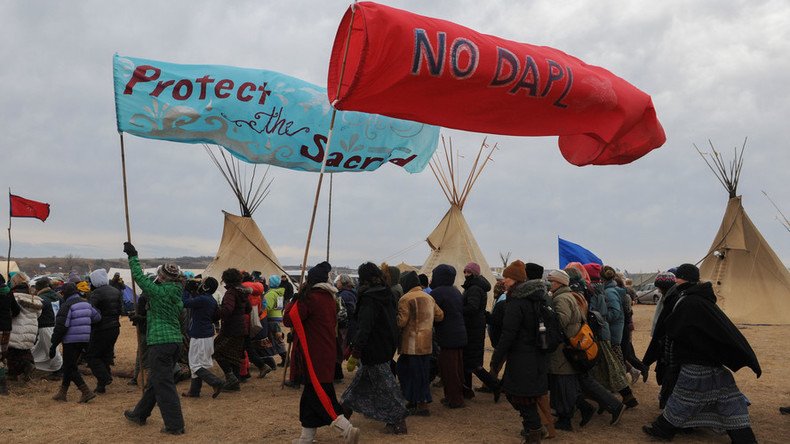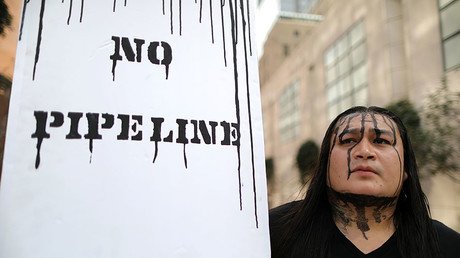Federal judge strikes down Dakota Access Pipeline permits, orders re-assessment of risks

The Standing Rock Sioux Tribe and allies are hailing a federal judge’s decision that the Dakota Access Pipeline’s permits shall be remanded until further notice. The court found that the controversial project’s permitting process was insufficient.
The tribe and others bringing the lawsuit have long called for the Dakota Access Pipeline to be shut down. US District Court Judge Boasberg of the District of Columbia did not order any interruption in the DAPL’s oil transporting operations on Wednesday, but he did issue a 91-page decision that states the US Army Corps of Engineers did not adequately consider various potential impacts of oil spills on fishing rights, hunting rights, or environmental justice, when it issued the permits.
An independent research firm, Clearview Energy Partners from Washington, DC, which looked into the case, pointed towards “omissions” in the Corps’ final analysis of the pipeline and may be taken care of soon, according to Reuters.
“This is a significant victory,” said Jan Hasselman, who is an attorney representing the Tribe for EarthJustice in Seattle. The Tribe will ask the judge in a status update next week that oil must stop flowing through the pipeline while the remand is in effect, according to the Seattle Times.
“We applaud the courts for protecting our laws and regulations from undue political influence and will ask the court to shut down pipeline operations immediately,” said Dave Archambault, III, Chairman of the Standing Rock Sioux Tribe.
The pipeline costs $3.8 billion and runs 1,168 miles across North and South Dakota, Iowa, and Illinois, and carries Bakken Crude on to other pipelines in Patoka, Illinois, according to The Seattle Times.
Energy Transfer Partners could not be reached for comment, according to the Seattle Times.
The tribe is arguing that the pipeline is putting its water supply in the Missouri River, its tribal lands, and sacred sites, at risk. The demonstrators against the construction of the pipeline call themselves “water protectors.” The Tribe has said that an oil spill in the Missouri River could be catastrophic to them, according to PBS.
The fight against Energy Transfer Partners and the pipeline had many sympathizers, such as tribes from the northwest and around the country, as well as environmental activists and others.
The pipeline’s path originally crossed through the city of Bismarck, which has a population that is 90 percent white. When the town raised concerns about a potential oil spill, the pipeline was rerouted to the south in order to go under the river near the tribe’s reservation.
The Missouri River is the reservation’s primary source of drinking water.
Later last year, then-President Barack Obama recommended that the Army Corps of Engineers stop construction of the pipeline in order to start an environmental impact assessment before moving forward, according to the Seattle Times.
President Donald Trump, however, ordered the Corps to issue the permits shortly after he was sworn in as president. Energy Transfer Partners, the company developing the pipeline, soon started an important part of construction that included connecting two ends of the pipeline.













